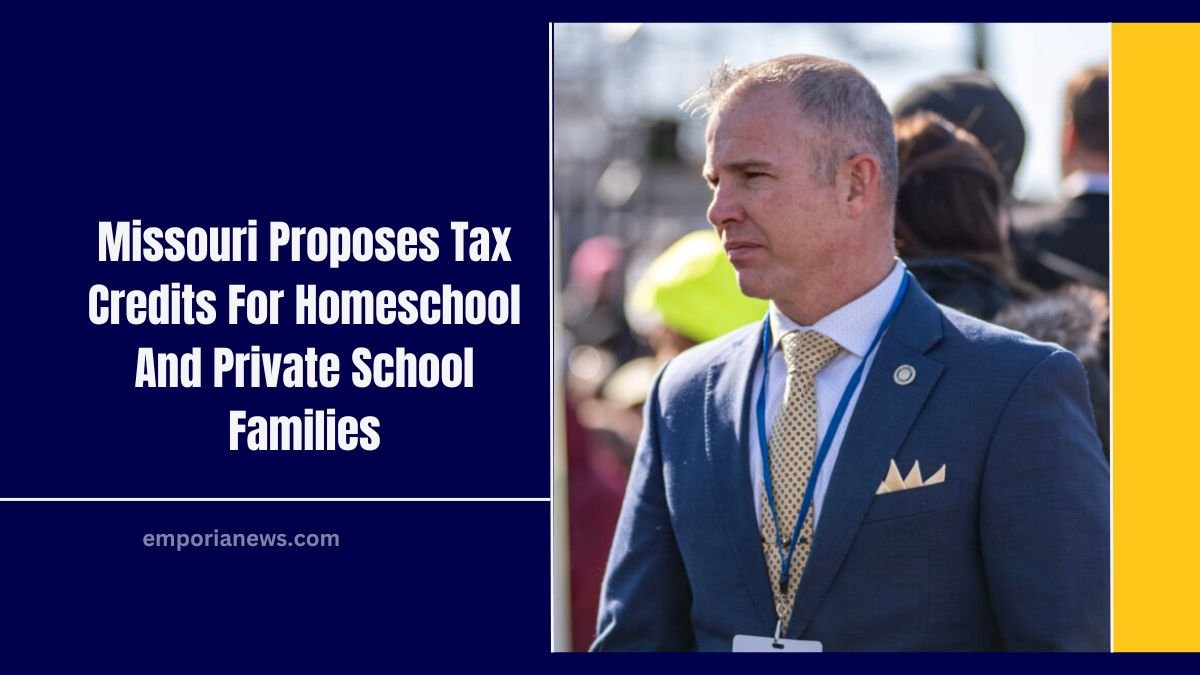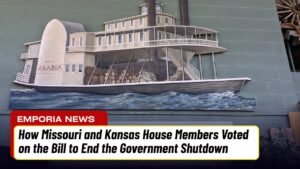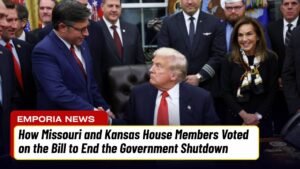In a significant move to support educational choice, Missouri lawmakers have introduced legislation aimed at providing tax credits to families with children in homeschools and private schools.
This initiative seeks to alleviate the financial burdens associated with alternative education and offer parents more flexibility in their children’s learning environments.
Overview of the Proposed Legislation
The Missouri Senate Education Committee recently deliberated on bills that would grant tax credits to families for educational expenses incurred while educating their children outside the public school system.
The credit would be capped at the annual state adequacy target, which is currently set at $7,145 per student. This figure represents the per-pupil expenditure of the state’s highest-performing school districts.
Key Features of the Tax Credit Proposal
- Eligibility: Families with children enrolled in homeschools, private schools, or virtual schools outside their district of residence would qualify for the tax credit.
- Credit Amount: The tax credit would cover 100% of eligible educational expenses, up to the state adequacy target of $7,145 per child.
- Administration: The Missouri Department of Revenue would oversee the program, allowing families to directly claim refunds for their educational expenditures.
Comparison with Existing Programs
Missouri currently operates the MOScholars program, a tax-credit scholarship initiative managed by the State Treasurer’s Office.
This program provides credits for donations to specific nonprofits, which then distribute funds to families enrolling their children in private schools.
In contrast, the newly proposed legislation enables families to receive direct refunds for their educational expenses, streamlining the process and broadening accessibility.
Legislative Support and Rationale
State Senator Rick Brattin, a Republican from Harrisonville and one of the bill’s sponsors, likened the proposed tax credit structure to the state’s gas tax refund system, where residents submit receipts for reimbursement.
He emphasized that the legislation is designed to empower parents without imposing additional regulations on homeschooling families.
Brattin addressed concerns about potential government oversight, stating that participation in the program is entirely voluntary and does not mandate any changes to existing homeschool protections.
State Senator Nick Schroer, a Republican from Defiance and another proponent of the bill, highlighted the need for alternatives to underperforming public schools.
He pointed out that despite increased education spending over the years, student outcomes have not improved proportionally.
Schroer argued that providing tax credits for alternative education could offer families viable options and potentially enhance educational standards across the state.
Concerns and Opposition
While the proposal has garnered support, it has also faced opposition from various groups. David Klarich, representing Family Covenant Ministries, a homeschooling advocacy organization, expressed concerns about potential government intrusion.
He suggested that the bill should specifically apply to a separate category of home educators established in previous legislation, ensuring that traditional homeschoolers remain unaffected.
Klarich emphasized the importance of preserving Missouri’s robust home education statutes, which currently offer significant autonomy to homeschooling families.
Public education advocates, including Otto Fajen of the Missouri National Education Association, raised issues regarding the potential financial impact on public schools.
Fajen cautioned that diverting funds through tax credits could reduce the general revenue available for public education, potentially exacerbating existing funding challenges.
He also noted that recent legislative measures have already increased financial obligations, such as raising teacher salaries, which rely heavily on general revenue.
Financial Implications
The proposed tax credit would be refundable, meaning families could receive a refund even if their tax liability is lower than the credit amount.
For taxpayers with property tax liabilities of $2,000 or less, the credit would cover eligible educational expenses minus $2,000.
Those with property tax liabilities exceeding $2,000 would receive a credit equal to their educational expenses minus their total property tax liability, with a maximum credit limit of $6,500.
Additionally, families benefiting from the tax credit would be eligible for a refund of their property tax payments.
To claim this refund, taxpayers must pay their property taxes in full before the delinquency date and notify the tax collector of their intent to apply for the credit.
The refunded amount would be held in a separate fund until the taxpayer provides proof of the tax credit received from the Department of Revenue.
The combined total of the property tax refund and the education expenses tax credit would not exceed $8,500 per taxpayer.
Potential Impact on Public Education Funding
Critics of the legislation argue that implementing such tax credits could further strain Missouri’s public education funding.
The state’s education budget is already facing challenges, with inflation outpacing funding increases over the past decade.
Governor Mike Kehoe, along with lawmakers and the State Board of Education, has called for a comprehensive review of the current funding formula to address these concerns.
Opponents fear that diverting funds to support private and homeschool education through tax credits may exacerbate existing disparities and hinder efforts to improve public school resources.
Summary of Key Provisions
| Feature | Details |
|---|---|
| Eligibility | Families with children in homeschools, private schools, or virtual schools outside their district of residence. |
| Credit Amount | 100% of eligible educational expenses, up to $7,145 per child. |
| Administration | Managed by the Missouri Department of Revenue; families can claim refunds directly. |
| Property Tax Refund | Available to participants; combined total of tax credit and property tax refund not to exceed |
Missouri’s proposed tax credit legislation represents a significant effort to support educational choice for families opting for homeschool or private school education.
While the initiative aims to provide financial relief and expand educational opportunities, it has sparked a debate over potential implications for public education funding and regulatory oversight.
As the legislation progresses, stakeholders from all sides will need to engage in thoughtful discussions to balance the interests of alternative education proponents with the needs of the public school system, ensuring that all Missouri students have access to quality education.




